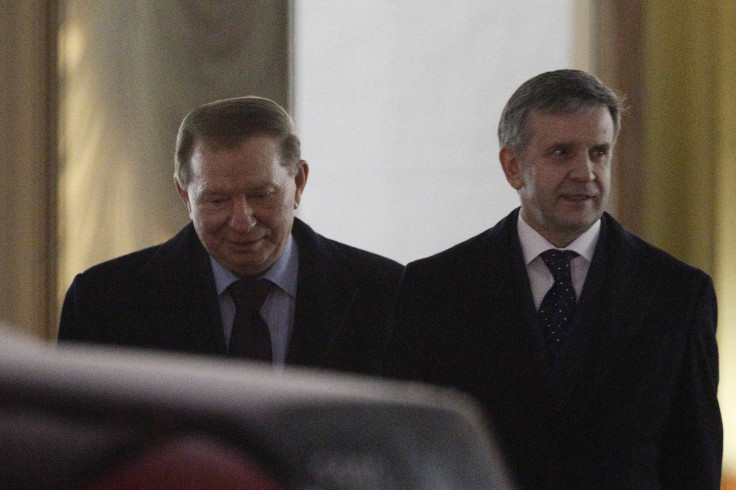Ukraine Crisis: Ceasefire Agreed Upon, Russian Source Says

A ceasefire was agreed upon late Tuesday night by Russian and Ukrainian officials and the Organization for Security and Co-operation in Europe -- collectively known as the Trilateral Contact Group -- along with pro-Russian separatists, according to a Russian source, just hours before talks among Russian President Vladimir Putin, Ukrainian President Petro Poroshenko, German Chancellor Angela Merkel and French President François Hollande were to begin Wednesday in Minsk, Belarus.
The OSCE said the TCG’s negotiations are usually done in “silent diplomacy,” without releasing detailed information. But a Russian source quoted by Itar-Tass news agency confirmed that heavy weapons would be withdrawn to unspecified locations and an observer plan would be put in place to ensure the truce holds. “The Minsk talks have squared a scheme of withdrawal of heavy weapons. The parties have also agree a ceasefire regime and control over its observance. The sides also discussed local elections and Donbass’ state structure, its form of government,” the Russian source said. The OSCE, which mediates the TCG talks, could not confirm the Itar-Tass report nor what official was being quoted in that story.
Representatives of the self-proclaimed Donetsk People’s Republic and Luhansk People’s Republic attended the meeting, which was held 10 days after the rebel delegation refused an invitation from the OSCE to attend similar talks. If they go on as scheduled, the four-way talks of the Russian, French, Ukrainian and German heads of state will come four months after the first Minsk meeting between Poroshenko and Putin, which produced a ceasefire that quickly fell apart and led to some of the worst bloodshed yet.
Both rebel and government forces pushed ahead on Tuesday prior to the ceasefire. Rebels continued a nearly monthlong assault on Debaltseve, a critical city that houses a railway hub that would link two rebel “capitals” in the east. Thousands of Ukrainian army troops are holed up in Debaltseve and were possibly surrounded as of Tuesday night. At least seven civilians were killed when sophisticated rockets hit Kramatorsk, a government-controlled town in Donetsk Oblast, on Tuesday, according to Al Jazeera.
Ahead of the reported truce agreement, government-backed militias continued to launch a counter-offensive near Mariupol, a contested city on the Sea of Azov that lies along a highway that could connect rebel-held territory with Crimea, which Russia annexed in March 2014.
© Copyright IBTimes 2024. All rights reserved.












